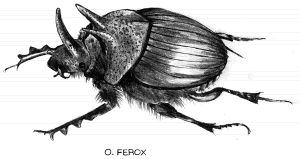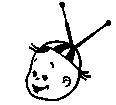A Time Spent in Romania
part one

I was sitting alone on the balcony when she tapped me on the shoulder, twice. Before turning around I took a draw of the cigar I was smoking - for in those days I smoked a brand of cheap cigars called Vipers. They were slender and dark, and evil to taste; I bought from down in the village for eleven cents each.
"You forgot to take the washing off the line," she remarked before sliding down next to me, her brown legs bent under her.
"So I did, sorry."
The cigar burned, fanned by the afternoon breeze and the lazy trail of smoke mirrored the river sliding before us. Like we did most afternoons we watched the river and I drew on my cigar; somewhere above us a bird croaked. Leaves rustled as the wind picked up, still we were silent.
We sat together in silence for what felt like an hour, although it can only have been ten minutes. Funny how time can stretch out like that, yet tomorrow you wake up and it's your birthday, again.
Finally I flicked the glowing stub into the air and stood up. The sun was sinking behind us. While it was still light the warmth had gone out of the afternoon.
"I'm hungry," Louise said softly in her Mississippi drawl. She still gazed at the river.
"It's not yet six o'clock, why don't we get some beer and then we'll see about dinner."
In those days I often drank beer instead of eating - beer filled you up and if you got a local one it was cheaper than food, even soft drinks. The local beer tasted homemade, and nothing like the home-brew stuff you get these days. A bock called Zeissman was my favourite - it was a dark brew with a creamy thick head, filling like mashed potatoes and after a couple made you feel like gooey caramel. But on that day, that month in fact, beer was out of the question as the fridge was broken. We had to settle for red wine, which wasn't bad either. Red Romanian table wine is no bad thing - if it occasionally tastes rough it's an honest farmyard roughness as it has no chemicals in it.
Louise woke from her reverie and with our arms around each other we left home and walked down the steep hill to the village. You learned to make that long walk quicker by lifting your legs high and letting gravity and inertia push you along. This was especially handy when you were weak from hunger; you could just jog with no effort at all.
In no time we stood puffing in the center of town. The whole place was just one street, about two-hundred metres long. There were eight shops and about twenty inhabited houses. How twenty houses sustained eight shops I never worked out. There was a lot of traffic passing through, the usual gypsies traveling to Sibiu and also some more adventurous backpackers who liked to visit a crumbling monastery outside of town. We never saw the monastery, although it is supposed to be worth the trip.
That day at the general store we bought from a pale sweaty local a big round loaf of bread and a thick wedge of cheese. Neither of us was earning any money - as if you could, here - so we were living on a strict economy. The bread cost next to nothing and they were even better when they went stale because they became so tough it would take ages to chew. Even after chewing until your burning jaw muscles would tell you to quit, swallowing the dense wad of bread was a painful experience.
Hence the need for the wine. The wine we bought next all came in two-litre Coke bottles. The local producers had peeled the Coke label off but that was all. Once you got over the look of the thing it was a surprisingly good system because all the sediment floated down to the legs of the bottle and stayed there when you poured. It was also cheap - in all that meal cost us under two dollars. That day we ate it in silence sitting on some rusted machinery, watching the brown river slide by. The wine we drank straight out of the bottle in turns; it was rough but the cheese softened it up.
So food was cheap, but it was still not cheap enough. There were days when we were so poor that we agreed not to spend money on anything, so we didn't eat. Hunger is much maligned, and I want to put some things down now. It's not fun but it can lend surprising clarity of vision. After you get past the first few stages (gnawing, emptiness and weakness) the physical effects cease and it affects your mind more. Thoughts occur to you that wouldn't otherwise and smells and other senses are sharpened.
We never starved in Romania, we were just hungry sometimes. In the end it was the hunger that drove Louise out of my arms and out run-down shack and back into the arms of her relieved mother back in Jackson, Mississippi.
